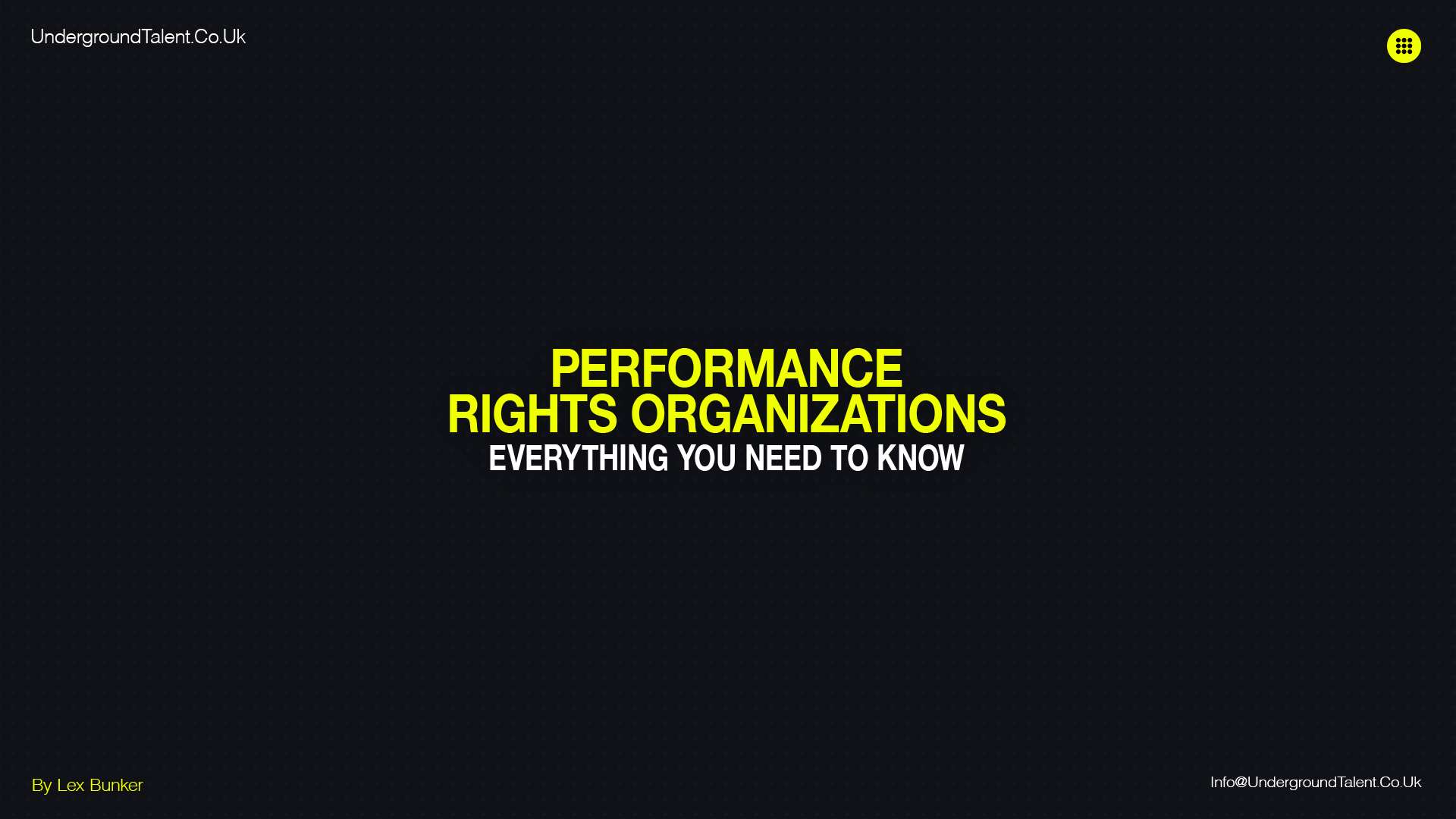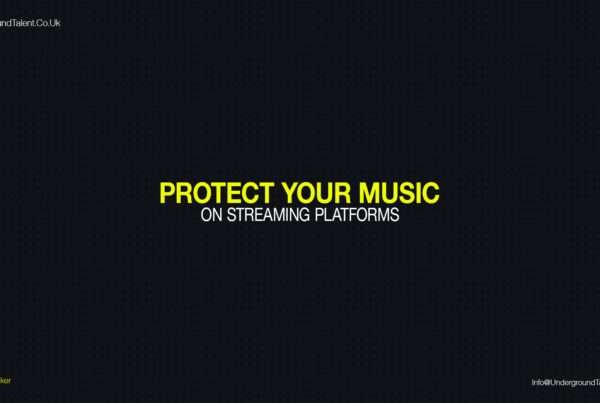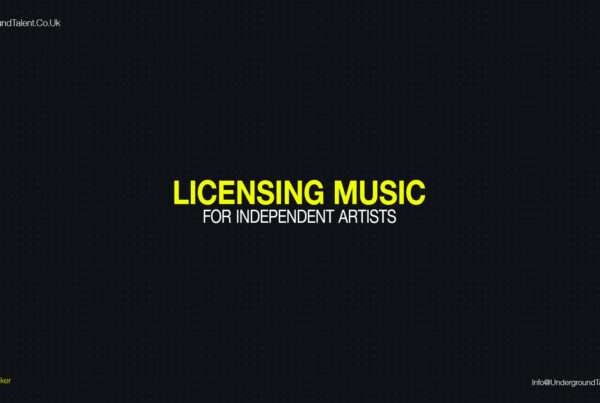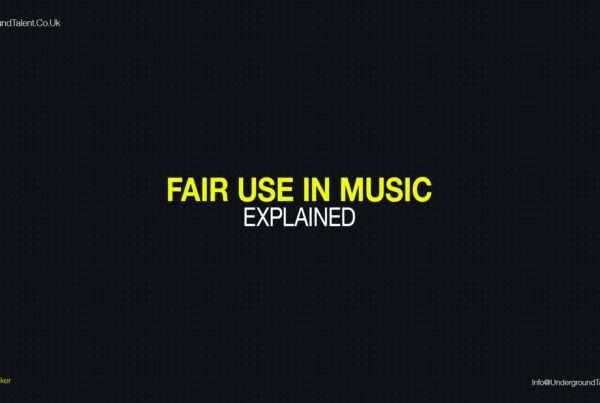What Are Performance Rights Organizations (PROs)?
Performance Rights Organizations (PROs) are entities that collect royalties on behalf of songwriters, composers, and music publishers. They ensure that music creators are compensated whenever their work is publicly performed, broadcasted, or streamed. PROs handle the licensing, tracking, and distribution of these royalties, providing a vital service to the music industry by protecting the rights of artists and ensuring they receive their due earnings.
Table of Contents
- Introduction to Performance Rights Organizations
- The Different Types of Collection Societies
- Breaking Down the Acronyms: PROs, CMOs, and MROs
- Global Variations in Royalties Collection
- Key Functions of Performance Rights Organizations
- Licensing Music: Facilitating Music Usage Rights
- Monitoring and Tracking: Ensuring Accurate Usage Reporting
- Royalties Distribution: From Collection to Payout
- Licensing Music with Performance Rights Organizations
- The Process of Obtaining Music Licenses
- Blanket Licenses vs. Negotiated Licenses
- Tracking Music Usage
- How PROs Monitor Radio, TV, and Streaming Services
- The Role of Airplay Data in Royalties Calculation
- Top Performance Rights Organizations Worldwide
- The US Giants: ASCAP, BMI, and SESAC
- International Powerhouses: PRS for Music, SACEM, and GEMA
- Emerging Markets: MSCS in China and IPRS in India
- How to Choose the Right PRO for You
- Factors to Consider When Selecting a PRO
- Pros and Cons of Major PROs: A Comparative Analysis
- Maximizing Your Royalties with PROs
- Tips for Songwriters: Ensuring Accurate Royalties Reporting
- The Importance of Registering with Multiple PROs
- Challenges in the Performance Rights Organization System
- Common Issues with Royalties Collection and Distribution
- How the Industry is Addressing These Challenges
- Future Trends in Performance Rights Organizations
- The Impact of Digital Streaming on Royalties Collection
- Innovations in Tracking and Distribution
- Conclusion
- How PROs Help You Succeed
- Final Thoughts: Navigating the World of PROs
Read Also: How to Copyright Your Music | A Guide to Protecting Your Music
Introduction to Performance Rights Organizations: A Lifeline for Songwriters and Composers
Performance Rights Organizations (PROs) are essential for songwriters and composers.
They actively collect royalties when your music plays publicly. Without PROs, artists miss out on earnings. These organizations ensure you get paid for your hard work. They track music use on radio, TV, and streaming services.
By joining a PRO, you focus on creating music while they handle the rest. It’s a practical way to protect your rights and ensure fair compensation. PROs like ASCAP, BMI, and SESAC bridge the gap between creators and users.
Ultimately, they play a crucial role in the music industry.
Why Every Musician Needs to Know About Performance Rights Organizations
Every musician should understand Performance Rights Organizations.
They ensure you’re paid when your music plays commercially. Without them, tracking royalties becomes nearly impossible.
By joining a PRO, you can earn from radio plays, live performances, and streaming. They handle the complex process of collecting and distributing royalties, allowing musicians to focus more on their craft. Knowing about PROs empowers you to take control of your music career.
It’s vital for maximizing your income and protecting your rights. Therefore, by staying informed, you can make better decisions for your musical journey.
The Different Types of Collection Societies
Breaking Down the Acronyms: Performance Rights Organizations (PROs), Collective Management Organizations (CMOs), and Mechanical Rights Organizations (MROs) Explained
Performance Rights Organizations (PROs) collect royalties for public performances of music. They ensure songwriters and composers get paid when their music is played on radio, TV, and live venues.
Collective Management Organizations (CMOs) cover a broader range of rights, often including mechanical and performance royalties.
Mechanical Rights Organizations (MROs) specifically handle royalties from the reproduction and distribution of music, such as CDs and digital downloads.
Understanding these acronyms helps you navigate the complex world of music royalties and ensures you know who manages your earnings.
Global Variations: How Different Countries Handle Royalties Collection through Performance Rights Organizations
Different countries have unique approaches to collecting royalties through Performance Rights Organizations.
In the United States, PROs like ASCAP, BMI, and SESAC operate alongside separate organizations for mechanical rights and digital royalties.
In contrast, countries like France and Germany have unified CMOs, such as SACEM and GEMA, which handle all types of royalties. These variations impact how artists register their works and receive payments.
Understanding these global differences helps you optimize your royalty collection and ensures you don’t miss out on international earnings.
Consequently, knowing how each country handles royalties can significantly enhance your music career.
Key Functions of Performance Rights Organizations
Licensing Music: How Performance Rights Organizations Facilitate Music Usage Rights
Performance Rights Organizations (PROs) play a crucial role in licensing music.
They grant permission to various entities, such as radio stations, streaming services, and live venues, to use your music. This process ensures that every time your music is played publicly, you receive appropriate compensation.
By issuing blanket licenses, PROs simplify the complex licensing process, allowing music users to legally play a wide range of songs.
This system not only protects the rights of songwriters and composers but also ensures that they are fairly compensated for their work.
Monitoring and Tracking: Ensuring Accurate Usage Reporting by Performance Rights Organizations
Accurate usage reporting is vital for fair royalty distribution, and PROs excel in this area.
They monitor radio, television, streaming services, and live performances to track when and where your music is played. This involves sophisticated technology and data analysis to capture every instance of your music being used.
By maintaining detailed logs and reports, PROs ensure that no performance goes unrecorded.
This meticulous tracking guarantees that you receive royalties based on actual usage, making sure you are paid accurately for every play.
Royalties Distribution: From Collection to Payout by Performance Rights Organizations
Once usage data is collected, PROs move on to the distribution phase.
They calculate the royalties owed to each songwriter and composer based on the tracked usage. This involves a complex process of matching usage reports with registered works and ensuring that payments are distributed fairly. PROs handle the financial transactions, ensuring that royalties reach the rightful owners promptly.
This process not only provides a steady income stream for music creators but also reinforces the importance of accurate and transparent royalty management.
By managing these tasks, PROs allow musicians to focus on their creative work without worrying about the intricacies of royalty collection.
Licensing Music with Performance Rights Organizations
The Process of Obtaining Music Licenses: A Step-by-Step Guide by Performance Rights Organizations
Obtaining music licenses through Performance Rights Organizations (PROs) involves a straightforward yet essential process.
First, a music user, such as a radio station or streaming service, contacts the PRO to request a license. The PRO then assesses the scope of the music usage, including factors like audience size and frequency of use.
Next, the PRO issues a license agreement detailing the terms and fees. Once the agreement is signed, the music user gains legal permission to use the music.
Throughout this process, the PRO ensures that songwriters and composers receive fair compensation for their work.
Blanket Licenses vs. Negotiated Licenses: What’s the Difference When Working with Performance Rights Organizations?
When working with Performance Rights Organizations, understanding the difference between blanket licenses and negotiated licenses is crucial.
Blanket licenses allow music users to access an entire catalog of music for a set fee. This provides flexibility and convenience. Radio stations and public venues commonly use this type of license because they play a wide variety of music regularly.
In contrast, negotiated licenses involve tailored agreements between the music user and the PRO. These agreements often include specific terms and rates based on the intended use of particular songs. Streaming services and media companies typically use these licenses because they need precise control over their music usage.
Both types of licenses ensure that songwriters and composers receive compensation. However, they cater to different needs and usage scenarios, reflecting the diverse ways in which music is used commercially. Thus, choosing the right type of license depends on the specific requirements of the music user.
Tracking Music Usage
How Performance Rights Organizations Monitor Radio, TV, and Streaming Services
Performance Rights Organizations (PROs) use advanced technology to monitor music usage across various platforms.
They track radio broadcasts by accessing playlists and logs provided by radio stations.
For television, PROs review cue sheets, which list all the music used in a show. Streaming services report their music usage directly to PROs, often through automated systems that provide detailed data on every track played.
Additionally, PROs may use digital fingerprinting technology to identify and log music played in real time. This comprehensive monitoring ensures accurate tracking of music usage, allowing PROs to collect and distribute royalties effectively.
The Role of Airplay Data in Royalties Calculation by Performance Rights Organizations
Airplay data plays a crucial role in calculating royalties for songwriters and composers. Performance Rights Organizations (PROs) analyze this data to determine how frequently and where songs are played. Radio stations, streaming services, and TV networks report each instance of music use to PROs.
The PROs then match this data with their database of registered works. By capturing airplay information accurately, PROs distribute royalties based on actual usage. This ensures that music creators receive compensation proportionate to the popularity and reach of their music. Consequently, this process reflects the true market value of their work.
Through meticulous data analysis and reporting, PROs maintain a fair and transparent system for royalty distribution. This system ultimately supports and empowers songwriters and composers, ensuring they benefit from the widespread use of their music.
Royalties Distribution: Ensuring Fair Payouts
Understanding Royalties: Performance vs. Mechanical Royalties Managed by Performance Rights Organizations
Performance Rights Organizations (PROs) manage two main types of royalties: performance and mechanical.
Performance royalties are earned when a song is played publicly, such as on the radio, TV, or in live venues. Mechanical royalties, on the other hand, are earned when a song is reproduced, such as in CDs, digital downloads, or streaming services.
Both types are essential for ensuring that songwriters and composers are fairly compensated for their work. By understanding these distinctions, music creators can better navigate their royalty earnings and maximize their income.
How Performance Rights Organizations Calculate and Distribute Royalties to Songwriters
Performance Rights Organizations (PROs) follow a meticulous process to calculate and distribute royalties.
First, they collect detailed usage reports from various sources, including radio stations, TV networks, and streaming platforms. Next, PROs match these reports with their database of registered works to identify which songs were played. T
hey then calculate royalties based on the frequency and scope of usage, ensuring each songwriter gets paid according to the actual performance of their music.
Finally, PROs distribute the collected royalties to songwriters, composers, and publishers, ensuring fair and timely payouts. This systematic approach guarantees that music creators receive their rightful earnings, supporting their continued creativity and contribution to the industry.
Challenges in the Performance Rights Organization System
Common Issues with Royalties Collection and Distribution by Performance Rights Organizations
Performance Rights Organizations (PROs) face several challenges in collecting and distributing royalties.
One common issue is inaccurate or incomplete reporting by music users, which can lead to underpayment or delayed payments to songwriters and composers.
Additionally, the complex nature of tracking music usage across various platforms, such as radio, TV, and streaming services, often results in data discrepancies.
International royalty collection presents another challenge due to varying regulations and cooperation levels between different countries’ PROs.
These issues can hinder the efficiency and fairness of the royalty distribution process.
How the Industry is Addressing These Challenges within Performance Rights Organizations
To address these challenges, the industry is adopting several strategies. Improved technology, such as digital fingerprinting and automated reporting systems, helps PROs track music usage more accurately.
Enhancing transparency in the reporting process allows songwriters to verify their royalties more easily.
International collaboration among PROs is also increasing, with standardized protocols for data exchange and royalty distribution.
These efforts aim to streamline operations, reduce errors, and ensure that music creators receive fair and timely compensation for their work.
Future Trends in Performance Rights Organizations
The Impact of Digital Streaming on Royalties Collection by Performance Rights Organizations
Digital streaming has significantly impacted royalties collection. As streaming services dominate the music industry, PROs have had to adapt their tracking and distribution methods.
Streaming generates vast amounts of data, requiring PROs to implement sophisticated analytics to ensure accurate royalty calculations.
Additionally, the shift to digital has highlighted the need for more transparent and real-time reporting systems. This evolution is shaping how PROs manage royalties and interact with both music users and creators.
Innovations in Tracking and Distribution: What’s Next for Performance Rights Organizations?
Looking ahead, several innovations are set to transform the PRO landscape.
Blockchain technology promises greater transparency and security in royalty tracking and payments. Artificial intelligence and machine learning are enhancing the accuracy of music identification and usage reporting.
Furthermore, global databases are being developed to centralize and standardize music rights information, facilitating smoother international royalty distribution.
These advancements will help PROs overcome current challenges and improve their services for music creators worldwide.
Conclusion
How Performance Rights Organizations Help You Succeed
Performance Rights Organizations play a vital role in empowering songwriters and composers.
By managing the complex processes of licensing, tracking, and distributing royalties, PROs ensure that music creators receive the compensation they deserve.
This support allows artists to focus on their creative work, knowing that their rights and earnings are protected.
The continued evolution and improvement of PROs will further enhance their ability to support and empower the music community.
Final Thoughts: Navigating the World of Performance Rights Organizations
Navigating the world of Performance Rights Organizations can be complex, but understanding their functions and benefits is essential for any music creator.
By choosing the right PRO and staying informed about industry trends and innovations, songwriters and composers can maximize their royalties and protect their rights.
As the music industry evolves, PROs will continue to adapt, providing critical support to ensure the success and sustainability of music creators worldwide.
Additional Resources
Producing Techno? Get Your Free Sample Packs
Dive into electronic music production with our newly released “Free Techno Tools V1” and “Free Techno Tools V2” sample packs. These packs are full of high-quality sounds that will add a professional touch to your tracks. If you’re looking to expand your sound library, these free sample packs are perfect for every techno fanatic. Click on the links below to access these fantastic resources and elevate your production game today!
Connect With Us
Join our vibrant community for more wisdom and updates:
And Always Remember…
Have Fun & Be Creative!





